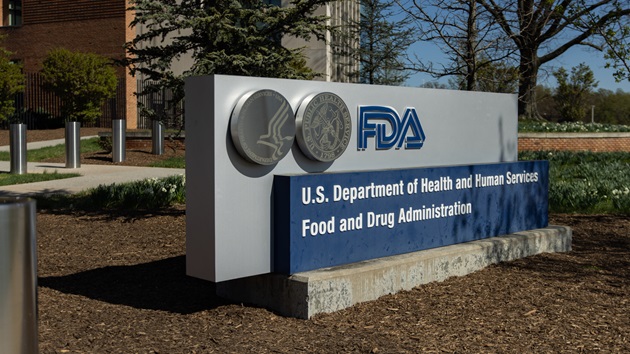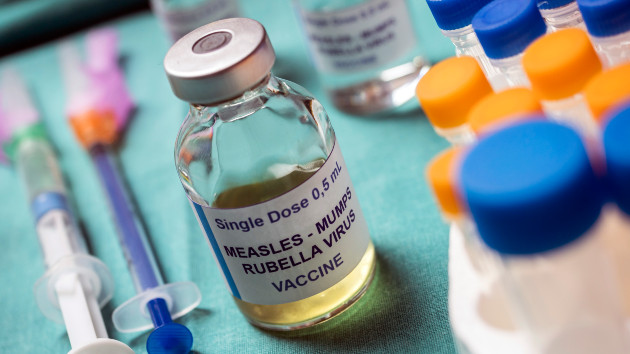Woman speaks out after surviving heart attack, open-heart surgery before graduating college
Written by ABC Audio ALL RIGHTS RESERVED on February 24, 2023

(NEW YORK) — By the time Ceirra Zeager graduated from college last year, she had already survived a heart attack and open-heart surgery.
Now, the 23-year-old is sharing her story to help other people, especially women, know the signs and symptoms of heart disease.
“You really have to advocate for yourself,” Zeager told Good Morning America. “And if you’re feeling something that’s abnormal, you should really get it checked out and just trust your gut that something may be wrong.”
Zeager, who is from Ephrata, Pennsylvania, suffered a heart attack at age 14. She said she began to feel symptoms the morning after she attended her first winter formal dance with friends.
“I remember trying to put my favorite shirt on,” she said. “It was a pink and gray top, and I always remember what it looks like because that moment just changed my life, trying to put that on and realizing that I couldn’t put it on.”
Zeager said she felt like her chest was “closing in,” and the pain got so severe that her parents drove her to a local hospital.
At the hospital, Zeager said she remembers waiting a long time only to have one doctor tell her parents that she had “teenage anxiety.”
“I had a crushing chest feeling and a loss of breath,” she said. “It was such intense pain that I thought to myself, ‘If this is teenage anxiety, I do not want to be here.'”
Without a clear diagnosis, Zeager said she was sent to a nearby children’s hospital, where doctors eventually rushed her into emergency surgery.
“I woke up from surgery and my sister was crying and I asked why, and she said, ‘You had a heart attack,'” Zeager recalled. “I was in shock.”
Zeager said doctors discovered she had an atrial septal defect, or ASD, a type of congenital heart defect where there is a hole in the wall that divides the upper chambers of the heart, according to the Centers for Disease Control and Prevention. The hole increases blood flow to the lungs, which can damage blood vessels in the lungs over time.
Each year, around 2,000 babies in the United States are born with ASD, but many cases are not diagnosed until adulthood, according to the CDC.
In Zeager’s case, she said she did not know she had ASD until a blood clot had traveled through the hole and lodged in a coronary artery, causing her heart attack.
Though doctors were able to plug the hole, Zeager said the heart attack upended her life.
“I had a pretty difficult transition back into normal life,” she said, adding, “It took me a few years to really grasp what had happened. I was very thankful they figured out what happened, but I was also kind of in a selfish mindset of ‘Why did this happen to me? Why wasn’t this ever caught before?'”
Zeager went onto to recover from the heart attack and graduate from high school, but said while in college, she started to experience symptoms again.
“I was feeling the quality of my life diminishing,” she said. “I was tired and exhausted. I would walk through a short room and be completely out of breath.”
Zeager said she had to advocate for herself to get an echocardiogram, which showed one of her heart valves was leaky.
She then sought a second opinion from another cardiologist, who told her she needed surgery as soon as possible to repair or replace the leaky valve.
The mental health struggle of heart disease
Zeager said she considers herself one of the lucky survivors as she has to take daily medications to manage her heart health but is expected to live a long and healthy life.
Though she is OK physically, Zeager said she has struggled over the years to cope mentally with her heart condition and is now on a mission to raise awareness of mental health alongside heart health.
“They all prepare you for what you’re physically going to go through, but then they don’t ever mention, ‘This is going to be hard for you to deal with mentally,'” said Zeager, who was named a “2023 Real Woman” by the American Heart Association’s Go Red for Women campaign. “There almost should be like a cardiac rehab, but for your brain.”
According to the Cleveland Clinic, studies show that people living with heart disease, including heart attacks, are at a higher risk for developing depression.
At the same time, mental health disorders can add stress to the heart and can be associated with heart disease, according to the CDC.
Zeager said she often found herself feeling depressed and “in a rut,” but did not know where to turn for help because she didn’t see people talking about mental health and the heart.
“It can be embarrassing to be in the mindset of ‘I need help,'” she said. “Even after open-heart surgery, when I literally felt myself in a rut, I still didn’t get help because I didn’t know where to go to and who to talk to. I didn’t have those resources.”
Zeager said some of her mental health struggles stemmed from not feeling heard by doctors, so her biggest advice to other women is to be proactive in their medical care and to seek out answers.
Heart disease, which refers to several types of heart conditions, is the leading cause of death for women in the United States, according to the CDC.
Dr. Harmony Reynolds, a cardiologist at NYU Langone Health in New York City, said women should not be worried about “false alarms” if they feel heart disease symptoms.
“It’s important to walk in and say, ‘I think I’m having a heart attack. Tell me why I’m not,'” said Reynolds, who did not treat Zeager. “If they say, ‘Oh, no, no, you’re just nervous,’ like what happened with Ceirra, then you have to say back, ‘Well, how can you tell I’m not?'”
She continued, “You have to advocate for yourself a little bit … and this way we make sure that everybody gets the attention they need.”
When it comes to symptoms to watch out for, Reynolds said not everyone has recognizable symptoms, but others may feel something noticeable that could be a sign of a heart attack.
“When I’m with patients, I’ll point from my mouth to my belly button and say that the discomfort can really be anywhere between, so the jaw, neck, shoulders, arms, chest, back, upper stomach,” she said. “Any of those areas may be important as a heart disease discomfort.”
Women can often experience symptoms other than chest pain when having a heart attack, including shortness of breath, lightheadedness, nausea and sweating.
Copyright © 2023, ABC Audio. All rights reserved.

 KVSP
KVSP 




